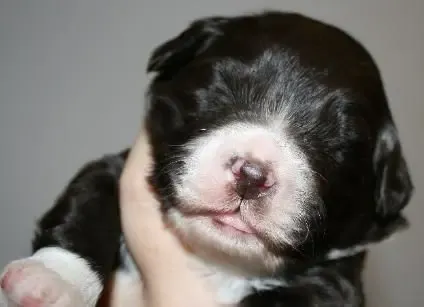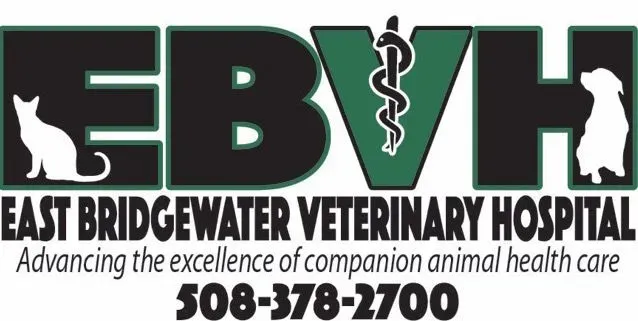For dedicated dog breeders and owners considering breeding their beloved canines, the journey toward successful reproduction demands specialized expertise. Navigating canine reproduction can be complex, involving intricate timing, detailed health assessments, and precise medical interventions. This is where a Canine Reproduction Veterinarian Near Me becomes an invaluable partner, offering the advanced knowledge and services essential for healthy breeding outcomes. These specialists provide comprehensive care, from pre-breeding evaluations to neonatal support, ensuring the well-being of both the dam and sire, and the future litter. This guide explores the critical services and requirements you should expect when seeking a veterinary professional dedicated to canine reproductive health.
Key Requirements for Canine Reproductive Services
Engaging with a specialized veterinary hospital for canine reproductive services often involves a set of stringent requirements designed to safeguard the health of your animals and optimize breeding success. These prerequisites ensure that all breeding candidates are thoroughly screened for potential health issues and that a clear breeding plan is established from the outset.
A fundamental step is a pre-breeding examination conducted by a veterinary professional. This initial assessment screens for any underlying health concerns that could impact the breeding process or the health of the offspring. For clients whose primary care veterinarian is different, complete medical records must be submitted prior to scheduling any reproductive appointments, allowing the specialist to gain a full understanding of the animal’s health history.
Crucial health screenings and vaccinations are non-negotiable. Both the bitch and stud dog must have an up-to-date heartworm/tick test (such as Flex4, SNAP, or 4DX) within 12 months of breeding, with results submitted to the veterinary hospital. Rabies vaccination must also be current, and a copy of the official rabies certificate is required—receipts or reminders are not legally acceptable. Furthermore, a negative Brucellosis test, performed within 30 days of breeding for both the bitch and stud dog, is mandatory for all breeding services. This test can typically be performed at the reproductive clinic if needed. For those requiring general veterinary check-ups or preventative care before specializing in reproductive services, finding a trusted home vet near me can be a good starting point to ensure foundational health.
Registration and age guidelines also apply. A copy of the registry certificate, such as an AKC registration certificate, must be provided. For assisted breeding and ovulation timing services, both the bitch and stud dog must be a minimum of 18 months (1.5 years) old to ensure they are physically mature and ready for the demands of breeding.
Specifics for elective Cesarean sections are particularly strict. Elective C-sections are typically only scheduled for existing clients who have undergone a recent pre-breeding examination, appropriate ovulation timing, a pregnancy ultrasound to confirm pregnancy, and a pregnancy X-ray to confirm litter size—all performed at the same veterinary hospital. Clinics generally do not schedule elective C-sections for patients that have not completed these critical preliminary steps through their facility, underscoring the importance of comprehensive, integrated care from one specialized provider.
Recommendations for Optimal Canine Reproductive Health
Beyond the mandatory requirements, a skilled canine reproduction veterinarian will offer valuable recommendations to further enhance the health and well-being of your breeding animals. These suggestions aim to minimize risks and promote the healthiest possible outcomes for both parents and puppies.
It is highly recommended that both the bitch and stud dog are up to date on their distemper vaccination (DA2P), along with other preventative vaccines tailored to lifestyle risks, such as Lyme, Lepto, and Bordetella, based on the owner’s discretion. Maintaining current heartworm and flea/tick prevention is also essential for overall health. Permanent identification, typically in the form of a microchip, is advised for all breeding animals.
Breed-specific health testing is a critical component of responsible breeding. Veterinarians often recommend researching your breed’s standard and associated health concerns through reputable organizations. Resources like the Orthopedic Foundation for Animals (OFA.org), American Kennel Club (AKC), and United Kennel Club (UKC), or specific breed parent clubs, provide invaluable information on recommended health clearances. Sharing these test results with your reproductive veterinarian ensures a comprehensive understanding of your animal’s genetic predispositions and potential health issues. Good nutrition is also vital during this period, and understanding options like best frozen raw food for dogs can contribute to optimal health.
 A golden retriever mother dog tenderly resting with her litter of newborn puppies, symbolizing healthy canine reproduction.
A golden retriever mother dog tenderly resting with her litter of newborn puppies, symbolizing healthy canine reproduction.
Comprehensive Services Offered by a Reproductive Veterinarian
A specialized canine reproduction veterinarian offers a wide array of services designed to support every stage of the breeding process, from initial health clearances to the safe delivery and care of newborns. These services highlight the depth of expertise available to breeders.
Health Clearances and Genetic Testing are fundamental. Services include OFA hip and elbow X-rays with sedation, OFA patella certification, OFA thyroid testing, OFA dentition, and other phenotypic evaluations. Additionally, OFA cardiac auscultation (without echocardiogram) and blood draws for genetic disease testing help identify hereditary conditions, ensuring healthier future generations.
Complete Reproductive Examinations are a cornerstone of their practice. These examinations begin with a thorough physical assessment to evaluate overall health. Any medical problems identified are addressed promptly and appropriately to optimize the chances of a successful pregnancy. Reproductive veterinarians are well-versed in the risks and benefits of various medications during pregnancy and lactation, ensuring the best possible care for your pregnant female. Vaginal examinations are also conducted to rule out physical obstructions, such as strictures, vaginal bands, or hyperplasia, that could impede breeding or whelping.
Nutritional Guidance is another vital service. Discussions include appropriate foods and dietary supplements, differentiating between those that are beneficial and those that could be harmful during pregnancy. For owners interested in preparing meals for their dogs, resources on healthy dog food to make at home can be incredibly useful.
Ovulation Timing and Artificial Insemination are critical for successful breeding. Clinics offer in-house ovulation timing, providing same-day results, as well as reference lab submission. Various artificial insemination methods are available, including vaginal, transcervical, and surgical insemination, each chosen based on the individual needs of the animals.
Pregnancy Evaluation and Management are crucial for monitoring fetal development. Services include ultrasound diagnosis with gestational aging to accurately determine the stage of pregnancy, and state-of-the-art digital X-rays to obtain accurate litter size counts near term.
 A veterinary professional performing an ultrasound on a pregnant dog, carefully monitoring the developing puppies.
A veterinary professional performing an ultrasound on a pregnant dog, carefully monitoring the developing puppies.
Infertility Diagnosis and Semen Services address challenges in conception. These include comprehensive infertility evaluations, semen evaluations, fresh chilled semen shipments, and semen freezing (cryopreservation) with long-term storage options.
Neonatal and Pediatric Care provides essential support for puppies after birth, ensuring they receive the best possible start in life.
Emergency and Elective Cesarean Sections are also part of reproductive services. Elective C-sections are typically scheduled 63 days from ovulation, as indicated by progesterone levels, with a slight +/- 1-2 day adjustment. It’s important to reiterate that elective C-sections are usually reserved for patients whose pregnancies have been appropriately timed, confirmed via ultrasound, and whose breeding process (timing and/or breeding) was managed by the same clinic. While specialized teams strive to accommodate the unique needs of reproductive clients, it’s worth noting that staffing and scheduling limitations may restrict the emergency care they can provide during normal hours, including emergency C-sections due to whelping difficulties. Understanding these limitations fosters a smooth working relationship between breeders and their reproductive specialists.
 The exterior of a modern veterinary hospital, signifying a trusted location for advanced animal care.
The exterior of a modern veterinary hospital, signifying a trusted location for advanced animal care.
The Value of a Specialized Canine Reproduction Veterinarian
For anyone involved in dog breeding, finding a qualified canine reproduction veterinarian near me is an investment in the health, success, and future of their breeding program. These specialists offer a depth of knowledge and a range of services that extend far beyond general veterinary care, addressing the intricate and often demanding aspects of canine reproduction. By adhering to rigorous health requirements, utilizing advanced diagnostic tools, and providing expert guidance, they significantly increase the chances of successful pregnancies and the birth of healthy puppies. Partnering with such a veterinarian ensures that every step, from initial planning to postnatal care, is managed with the utmost professionalism and scientific accuracy. We encourage you to consult with a specialized reproductive veterinarian to develop a comprehensive plan tailored to your specific breeding goals.
Resources
- Birthing Puppies by Wendy Brooks DVM, DABVP – https://veterinarypartner.vin.com/default.aspx?pid=19239&id=4951546
- Dog Whelping: The Complete Guide: By Dr. Greer and the Revival Education Team – https://www.revivalanimal.com/learning-center/dog-whelping-the-complete-guiderevival-animal-health
- Birthing Puppies: By Wendy Brooks, DVM, DABVP – https://veterinarypartner.vin.com/default.aspx?pid=19239&id=4951546
- Pregnant Dog Care: by Wendy Brooks, DVM, DABVP – https://veterinarypartner.vin.com/default.aspx?pid=19239&id=4951916
- American Kennel Club – https://www.akc.org/register/information/artificialinsemination/
- American Kennel Club – https://www.akc.org/expert-advice/dog-breeding/deciding-bestmethod-artificial-insemination/
- Estrus Cycles in Dogs: Breeding, Care and Wellness: by Cheryl Yuill, DVM, MSc, CVH – https://vcahospitals.com/know-your-pet/estrus-cycles-in-dogs
- American Kennel Club – https://www.akc.org/breeder-programs/breeder-education/akcsguide-responsible-dog-breeding/
- The Important Role of Breeders in Getting Puppies Off to a Healthy Start – https://www.akc.org/expert-advice/dog-breeding/important-role-breeders-gettingpuppies-off-healthy-start/
- How long should puppies stay with their mother? : https://www.vet.cornell.edu/departments-centers-and-institutes/riney-canine-healthcenter/health-info/how-long-should-puppies-stay-their-mother
